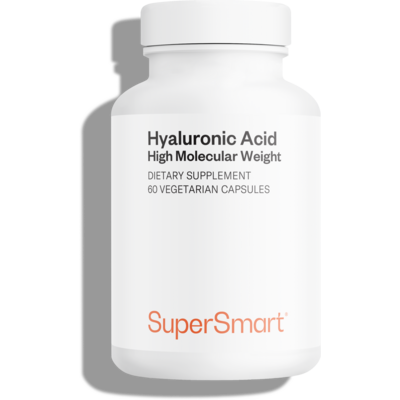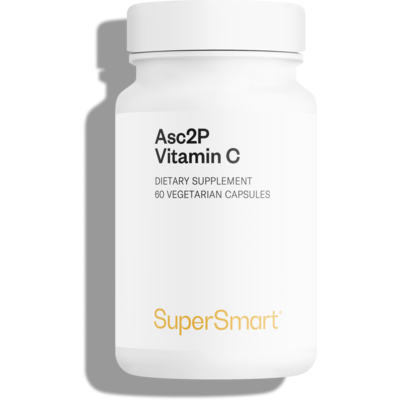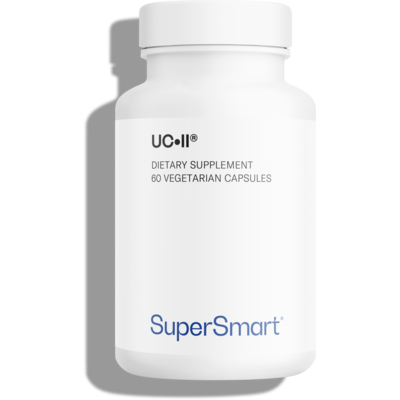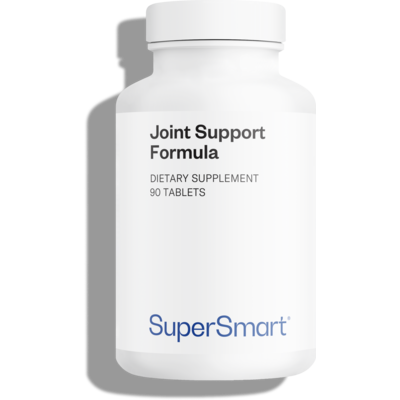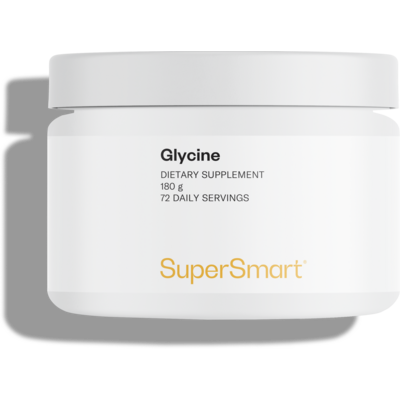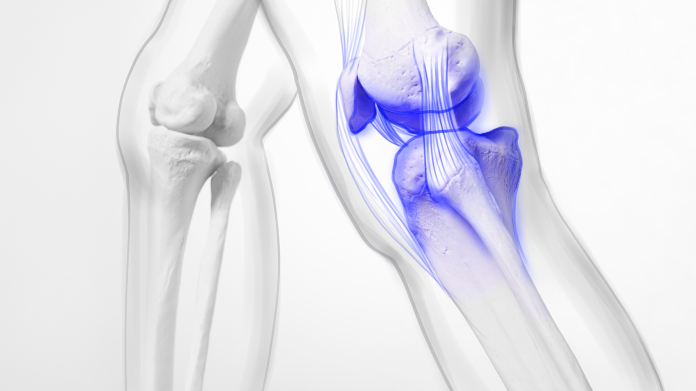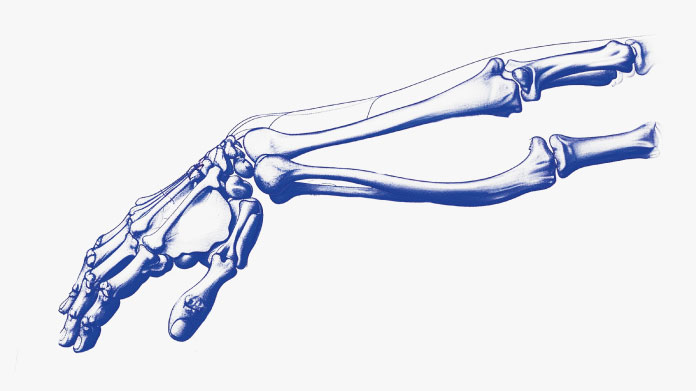4 supplements for regenerating cartilage
Many people (especially the over-65s) take supplements to help regenerate their cartilage, which may be damaged by inflammation, wear and tear or repeated trauma. Discover the 4 best supplements for supporting cartilage.

Why might supplements be needed to help regenerate cartilage?
Cartilage: one of the few tissues with limited regeneration
Both flexible and tough, cartilage plays a crucial role in the body, covering the ends of bones at their joints to facilitate movement and absorb shocks.
Unlike other types of tissue (muscles, tendons, skin, etc.), cartilage has limited regenerative ability due to its low blood supply and cell density, and absence of lymphatic vessels and nerves.
In addition, chondrocytes - the cells that make up cartilage and produce the cartilaginous matrix (in particular collagen) - have a limited capacity for division and repair, especially in the adult body. Indeed, when damage occurs, healing is slow or virtually non-existent in adults.
Why does cartilage gradually wear out?
Over time, cartilage becomes damaged and less flexible.
Repetitive activities, the heavy loads placed on joints throughout life (compounded by excess weight), injuries, as well as the development of numerous conditions such as osteoarthritis, inflammatory disease and diabetes, and the cumulative effects of dietary deficiencies (espepcially vitamin D) all contribute to this progressive wear and tear.
Ways of slowing down cartilage degeneration
As it is difficult to regenerate damaged cartilage, it makes sense to do everything possible to slow down its deterioration and maintain it in an optimal state for as long as possible. For that, 3 measures are usually recommended (1):
- eat a sensible, balanced diet, both to provide the nutrients needed for healthy cartilage and to maintain an optimal weight and so reduce the pressure exerted on sensitive joints such as the knees and hips;
- take regular exercise, to stimulate blood flow to cartilage and strengthen the muscles around joints, though repetitive, high-intensity exercise should be avoided (heavy loads, road running, repeated jumps…);
- ensure any joint injury is treated promptly and carefully: untreated sprains, tears and fractures can cause irreversible damage to cartilage.
Research has, however, shown that cartilage regeneration can be stimulated to some degree, both through innovative surgical procedures and treatments (2), as well as the use of nutritional substances available in the form of dietary supplements.
4 dietary supplements good for cartilage regeneration
Key role of chondroitin in cartilage
Chondroitin is an essential component of cartilage, produced directly by the body. Many studies have suggested it is associated with cartilage reconstruction.
Three mechanisms of action are thought to be at play, though further research is needed: maintaining water in the cartilage matrix, inhibiting certain enzymes which destroy cartilage (primarily MMPs and aggrecanases) and stimulating chondrocytes to produce more material like collagen (3-5).
Glucosamine, natural support for the joints
Like chondroitin, glucosamine is produced by the body, under normal conditions, from glucose and glutamine. A number of studies have shown that cartilage degenerates when the glucosamine production process is disrupted.
Several mechanisms of action have been proposed for its potential restorative effect on the cartilaginous matrix: a key role in the natural production of several components of the matrix (glycosaminoglycans and proteoglycans), its contribution to joint lubrication, and its inhibition of destructive enzymes. Some synergistic joint supplements contain marine-source glucosamine sulfate (such as Joint Support Formula).
Type II collagen supplements
Returning to collagen, while the body is again theoretically able to produce this protein in sufficient quantities, it is absent in degenerative cartilage, yet to have any hope of repairing cartilage, optimal levels are essential.
Studies suggest that an exogenous intake of type II collagen may be able to stimulate the body’s own collagen production (6). It is found primarily in offal as well as in collagen supplements aimed specifically at cartilage (such as UC II®).
As a substitute, you can take glycine – one of the base materials of collagen production – combined with vitamin C, which supports collagen formation and normal cartilage function.
What effect do hyaluronic acid supplements have on cartilage?
While young people’s joints have a high level of hyaluronic acid the body’s production declines with age, resulting in the joints becoming painful and less flexible.
It is actually a key component of synovial fluid, which helps to absorb shocks and provide nutrients to cartilage chondrocytes. Without it, natural waste material and debris produced by wear and tear of the joints are not properly eliminated, impairing cartilage function and repair.
In an effort to regenerate seriously degenerated joint cartilage, visco-supplementation is often used, which involves injecting a hyaluronic acid-based gel directly into the joint, but there are also dietary supplements available that can provide high molecular weight hyaluronic acid absorbable by the body (such as Hyaluronic Acid).
SUPERSMART ADVICE
References
- Guo X, Xi L, Yu M, Fan Z, Wang W, Ju A, Liang Z, Zhou G, Ren W. Regeneration of articular cartilage defects: Therapeutic strategies and perspectives. J Tissue Eng. 2023 Mar 31;14:20417314231164765. doi: 10.1177/20417314231164765. PMID: 37025158; PMCID: PMC10071204.
- Muthu S, Korpershoek JV, Novais EJ, Tawy GF, Hollander AP, Martin I. Failure of cartilage regeneration: emerging hypotheses and related therapeutic strategies. Nat Rev Rheumatol. 2023 Jul;19(7):403-416. doi: 10.1038/s41584-023-00979-5. Epub 2023 Jun 9. PMID: 37296196.
- Modulation of inflammation by chondroitin sulfate. Vallières M, du Souich P. Osteoarthritis Cartilage. 2010 Jun;18 Suppl 1:S1-6. Review.
- Antioxidant, antiinflammatory and neuroprotective actions of chondroitin sulfate and proteoglycans. Egea J, García AG, et al. Osteoarthritis Cartilage. 2010 Jun;18 Suppl 1:S24-7. Review.
- Importance of pharmaceutical composition and evidence from clinical trials and pharmacological studies in determining effectiveness of chondroitin sulphate and other glycosaminoglycans: a critique. Rainsford KD. J Pharm Pharmacol. 2009 Oct;61(10):1263-70. Review.
- Sun L, Xu Y, Han Y, Cui J, Jing Z, Li D, Liu J, Xiao C, Li D, Cai B. Collagen-Based Hydrogels for Cartilage Regeneration. Orthop Surg. 2023 Dec;15(12):3026-3045. doi: 10.1111/os.13884. Epub 2023 Nov 9. PMID: 37942509; PMCID: PMC10694028.
Keywords
5 Days
great products and prices
great products and prices
Marie
11 Days
Easy to navigate site
Easy to navigate site, had what I was searching for, good price. easy order-check out
James Tucker
17 Days
My skin is clearing up nicely!
Pretty good for my skin so far.
Christian
19 Days
The new packaging is excellent
The new packaging is excellent - finally! No more squashed boxes and torn envelopes.
GORAN
20 Days
Great Product
Great Product
Larry Garrett
24 Days
Quick shipping
Quick shipping; good price. No issues!
Mary McCarty
26 Days
Thr product is very good and is helping…
Thr product is very good and is helping me on my health. Then is always on time
LUGO Luz
28 Days
Buying was fine
Buying was fine. I had problems with the website not recognizing my login info, and had to call to get it fixed. Other than that, everything was good.
David S. Clark
29 Days
Your super maca and super ginseng are…phenomenal
Your super maca and super ginseng are phenomenal supplements that compliment each other when taking them together. Fantastic feeling of well-being and lots of mid day energy without the crash.
Keith Mason
31 Days
I have had amazing results with every…
I have had amazing results with every supplement I've purchased. I am extremely satisfied with this company
kirstin Torres
31 Days
Fine products
Fine products . They are on the leading edge of online supplements. The only issue -so far-is they sometime run out of subscription items.
Jason Argos
34 Days
The ordering process is very user…
The ordering process is very user friendly and the products always come in a timely manner.
CARTER Rhonda
35 Days
The price for Dr
The price for Dr. Pero's AC-11 is reasonable and in line with his views. (my former colleague). Keep it pure.
CAMPBELL Clayton
38 Days
Right on every time.
Right on every time.
Arthur Nicholas
41 Days
They are cheaper than everyone else and…
They are cheaper than everyone else and the shipping was fast. Great company.
Patricia Adams


